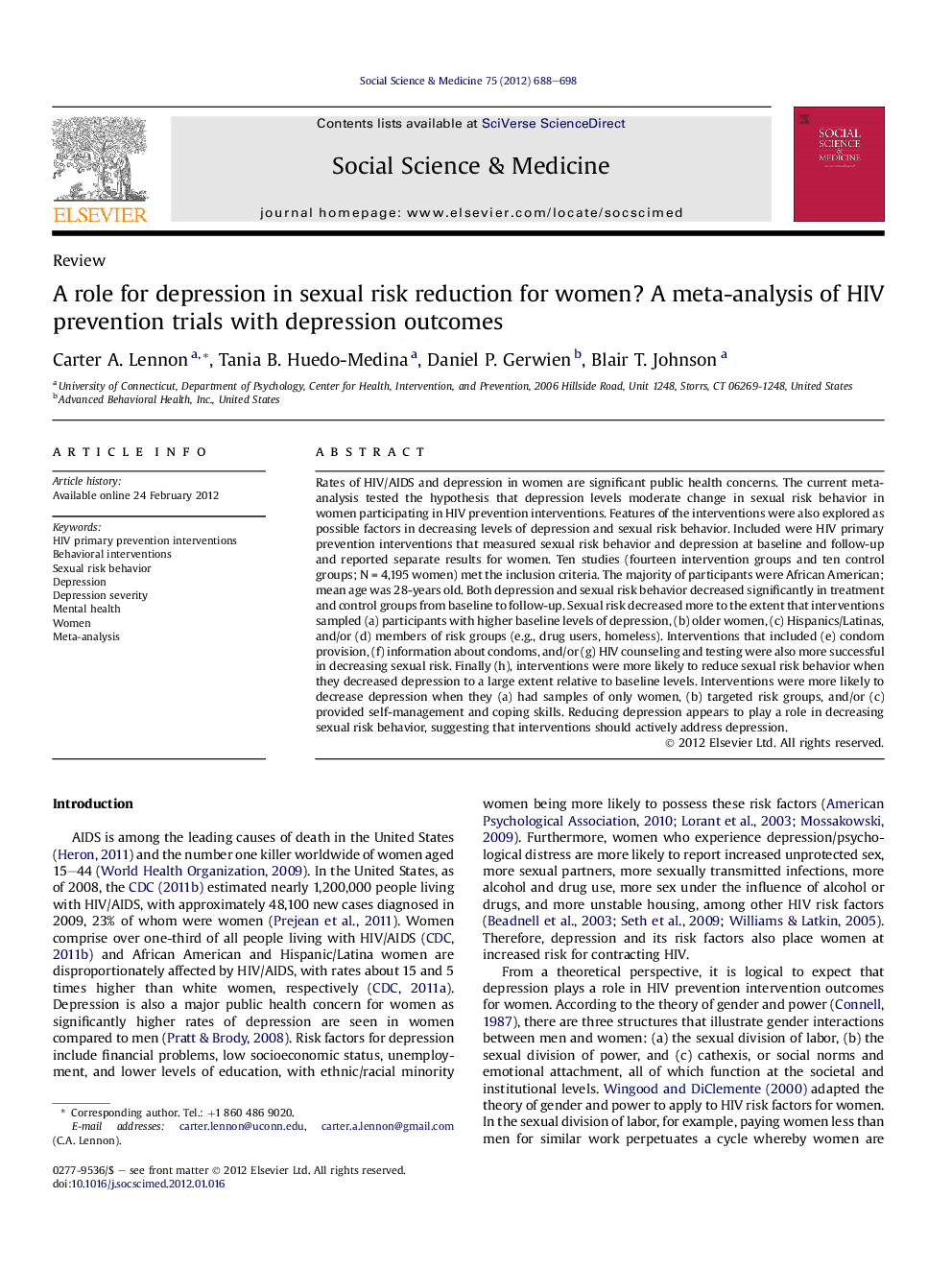| Article ID | Journal | Published Year | Pages | File Type |
|---|---|---|---|---|
| 952424 | Social Science & Medicine | 2012 | 11 Pages |
Rates of HIV/AIDS and depression in women are significant public health concerns. The current meta-analysis tested the hypothesis that depression levels moderate change in sexual risk behavior in women participating in HIV prevention interventions. Features of the interventions were also explored as possible factors in decreasing levels of depression and sexual risk behavior. Included were HIV primary prevention interventions that measured sexual risk behavior and depression at baseline and follow-up and reported separate results for women. Ten studies (fourteen intervention groups and ten control groups; N = 4,195 women) met the inclusion criteria. The majority of participants were African American; mean age was 28-years old. Both depression and sexual risk behavior decreased significantly in treatment and control groups from baseline to follow-up. Sexual risk decreased more to the extent that interventions sampled (a) participants with higher baseline levels of depression, (b) older women, (c) Hispanics/Latinas, and/or (d) members of risk groups (e.g., drug users, homeless). Interventions that included (e) condom provision, (f) information about condoms, and/or (g) HIV counseling and testing were also more successful in decreasing sexual risk. Finally (h), interventions were more likely to reduce sexual risk behavior when they decreased depression to a large extent relative to baseline levels. Interventions were more likely to decrease depression when they (a) had samples of only women, (b) targeted risk groups, and/or (c) provided self-management and coping skills. Reducing depression appears to play a role in decreasing sexual risk behavior, suggesting that interventions should actively address depression.
► This meta-analysis is the first to examine how depression moderates intervention-induced sexual risk reduction for women. ► Sexual risk behavior decreased more when accompanied by reductions in depression. ► Decreased sexual risk appeared in interventions that sampled Latinas, provided condoms, and/or included counseling & testing. ► Decreased depression appeared in interventions with entirely female samples and/or that taught coping/self-management skills. ► Findings suggest psychological functioning should be accommodated when designing HIV prevention interventions for women.
